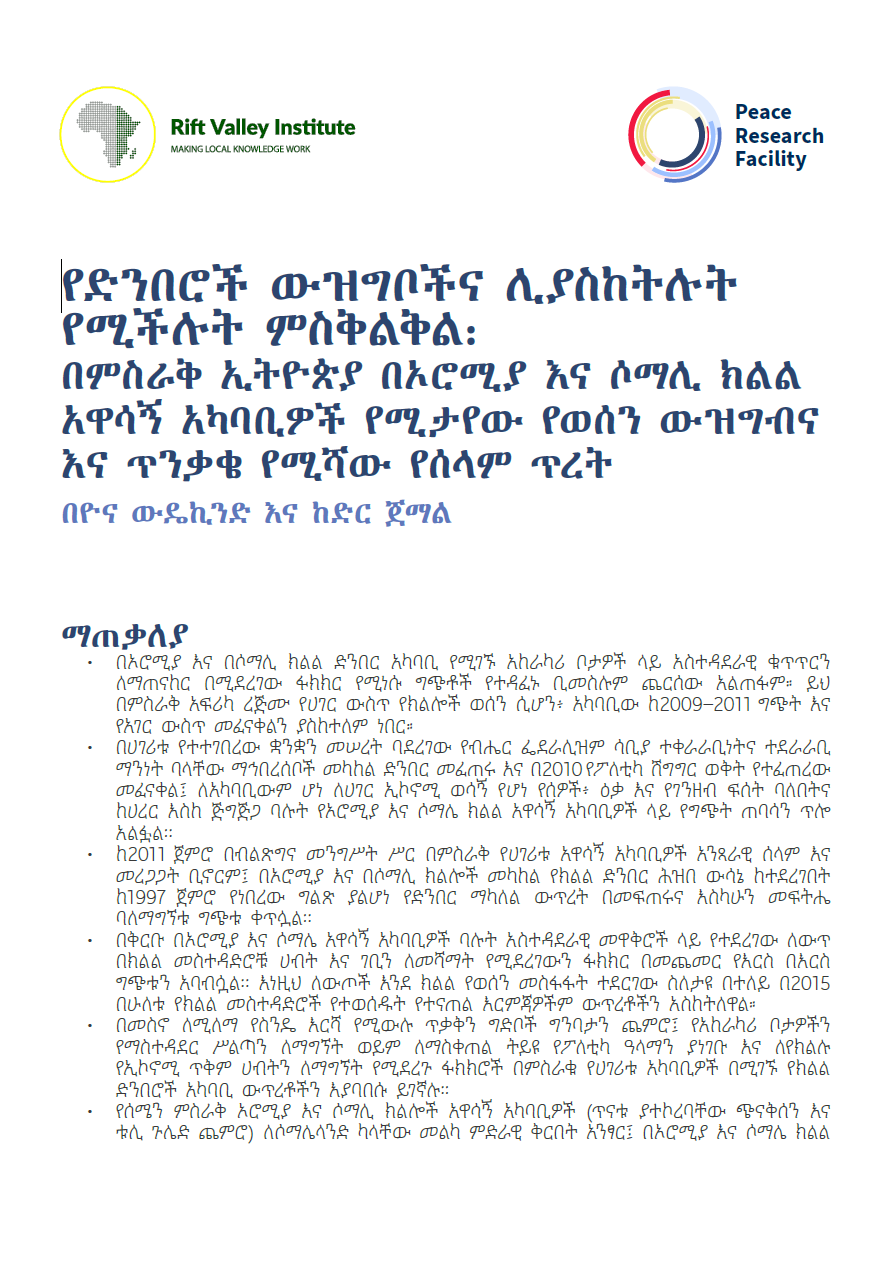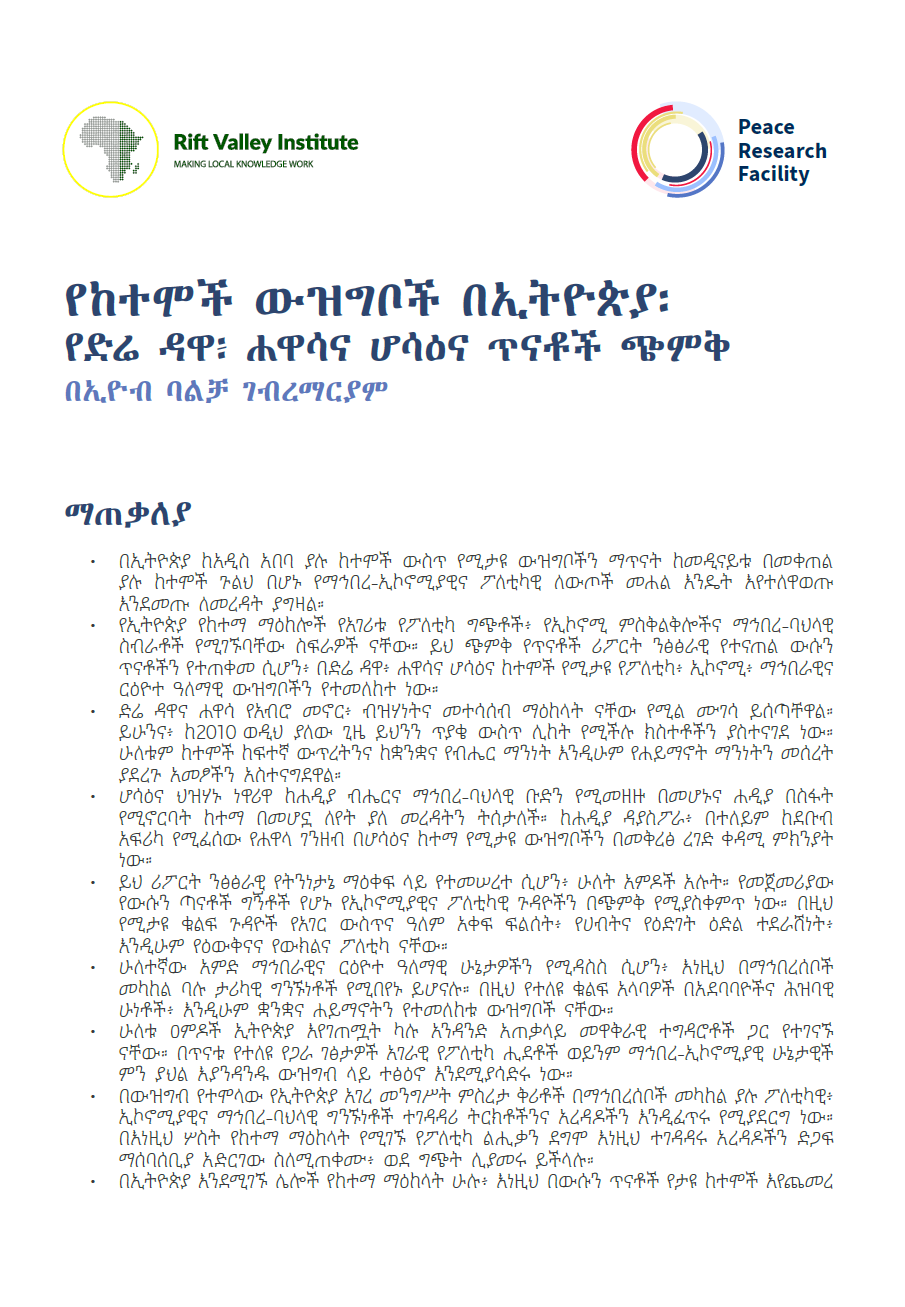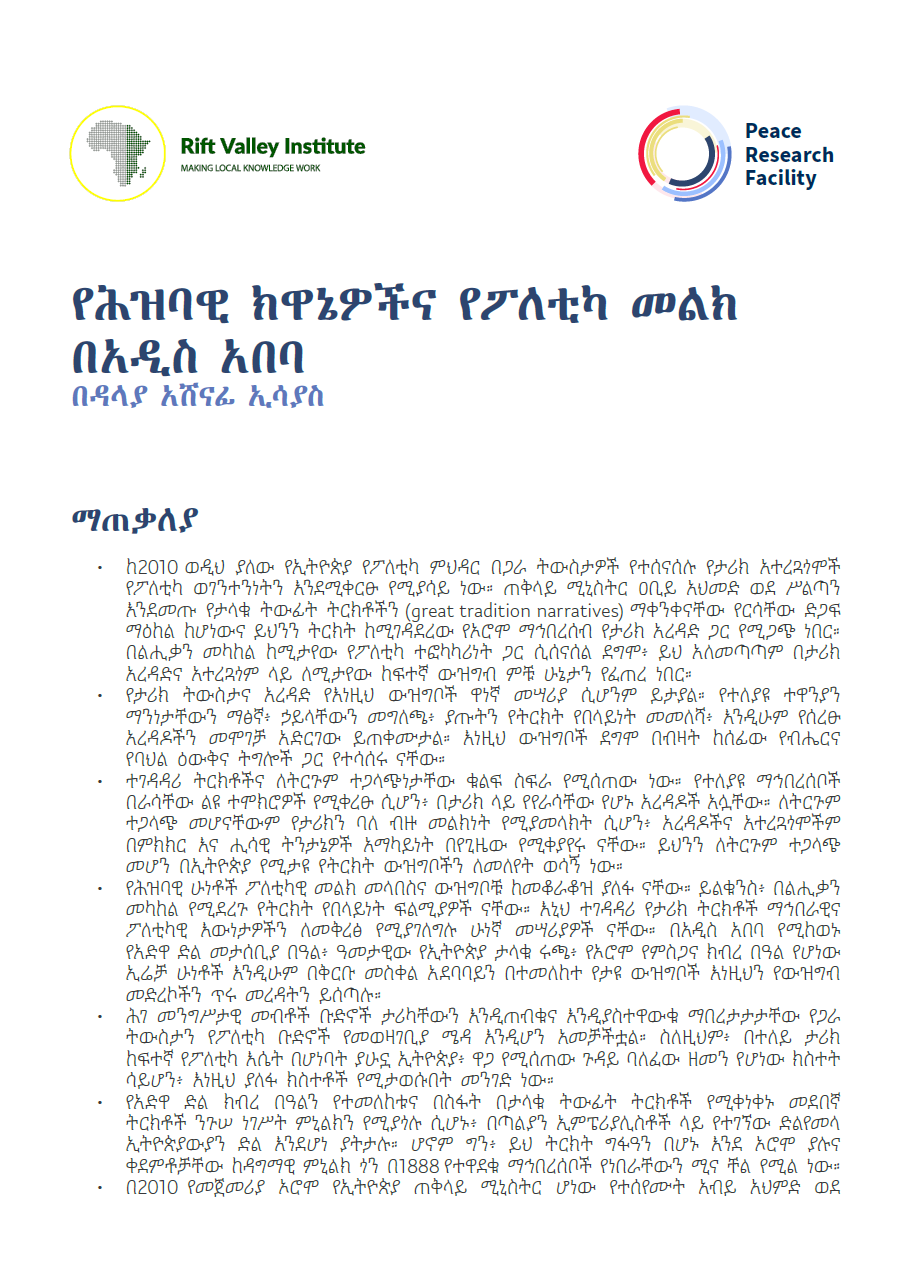The third phase of RVI’s South Sudan Customary Authorities Project, funded by the Swiss Federal Department of Foreign Affairs (FDFA), is now underway. The project aims to deepen understanding of customary authorities’ role within, and with, their communities, and to amplify their voices. The work builds on previous phases of the project, activities and findings of which are captured in two short films: The Chiefs Speak and We Are Here for the Sake of the People—currently also being translated into simple Arabic for wider dissemination; and a short publication, Now We Are Zero.
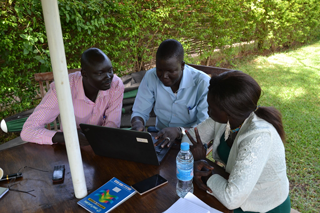 The project also builds the research capacities of young South Sudanese researchers, most recently through a second short, intensive training course on oral history research methods in Juba. Taught by researchers, John Ryle and Nicki Kindersley, and academics from Juba University, Rebecca Lorins and Yosa Wawa, students and young professionals from different parts of South Sudan, the course covered interview skills and the important role that discussing and documenting history can play in contributing to peace.
The project also builds the research capacities of young South Sudanese researchers, most recently through a second short, intensive training course on oral history research methods in Juba. Taught by researchers, John Ryle and Nicki Kindersley, and academics from Juba University, Rebecca Lorins and Yosa Wawa, students and young professionals from different parts of South Sudan, the course covered interview skills and the important role that discussing and documenting history can play in contributing to peace.
All participants conducted practice interviews with individuals in their communities including current acting chiefs, former chiefs, spiritual leaders, mothers and youths. The interviews explored the differing perceptions people hold of chiefs, their histories, how they came into their positions, their relations with others, how they have conducted their responsibilities and the challenges they are facing.
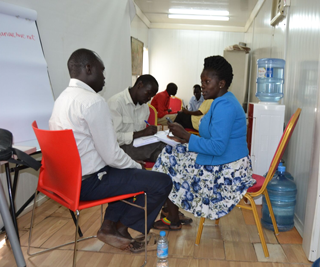 Oral history interviews give space for interviewees to express their stories in a variety of different ways. Mama Veronica Akama shared a song in praise of the local Chief in her community, singing ‘Odwa nya Hobu, odwa nya agrinyang Abili ithanyahu Amiji, Odwa nya Hobu, odwa nya lathama Abili Ithasuyo amiji, Iyang ohoi ohobore ho kalang’ (‘The chief who was effective was Agrinyang, Abili restored peace, to the whole land and people, Abili you made the community alive again’).
Oral history interviews give space for interviewees to express their stories in a variety of different ways. Mama Veronica Akama shared a song in praise of the local Chief in her community, singing ‘Odwa nya Hobu, odwa nya agrinyang Abili ithanyahu Amiji, Odwa nya Hobu, odwa nya lathama Abili Ithasuyo amiji, Iyang ohoi ohobore ho kalang’ (‘The chief who was effective was Agrinyang, Abili restored peace, to the whole land and people, Abili you made the community alive again’).
Alex Miskeen reflected on his own practice interview:
He even said that it is very important to tell [his] story so that people won’t get lost; especially he said, the world is changing daily and if we do not document our history, the coming generation will get lost. This then allowed me to have confidence in myself to ask questions [in a] straight forward [way].
In the coming months, research will be conducted across South Sudan and in neighbouring countries. Updates from the researchers will be published on the RVI website in the coming months.

